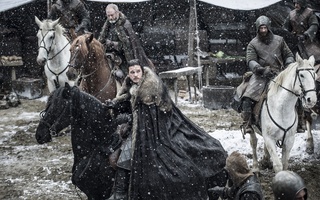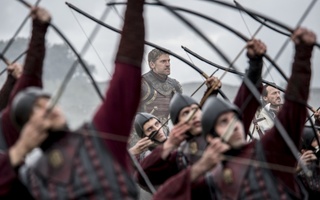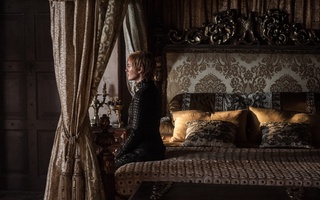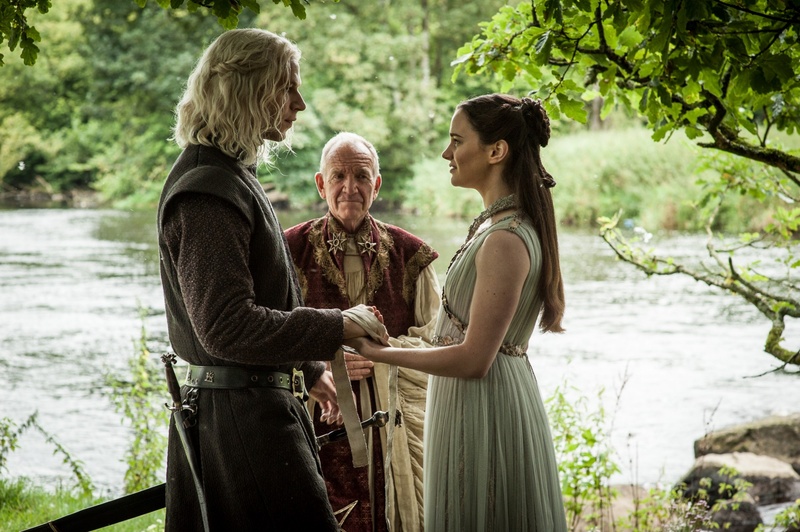For the seventh season finale of “Game of Thrones,” writers Aziz B. Yakub and Grace Z. Li decided to sit down and have a conversation about the pitfalls and highlights of “The Dragon and the Wolf”.
Grace Z. Li: All right, let’s start with the meeting in King’s Landing.
Aziz B. Yakub: I’d say that the way they approached Cersei’s understanding of the situation compared to Jon’s—juxtaposing loyalty and some sense of honor with Cersei’s pure self-preservation—was actually rather brilliant, and was one of the few things that meeting did well. At its core, it put them in a position that reveals their personalities. In an overstuffed episode, it feels less egregious than it could have been.
On the whole, most of the season felt like it was ambling towards an unknown goal and an unknown end. There was, ultimately, something nice about having it all come together, and frankly, having some sort of vague sense that the writers actually knew what they were doing.
GL: I actually think that the writers had a very clear direction, but that that was the problem of this season. Everything felt too planned and too convenient, and sometimes just entirely unbelievable.
AY: The season felt like it was written from the end to the beginning, like they thought, “How can we put everyone in this position to make this event happen?”
I also feel like the show’s lost its bite. When’s the last time that someone of consequence has died? I feel like if you were watching it in a room full of people, everyone would have applauded at the deaths of this season.
GL: Like Littlefinger? It was really satisfying to see a character so undeniably selfish meet his end. But I don’t think that the scene was done well because of the poor buildup and characterization from past episodes. This entire season has sort of thrown us on a loop. We were really excited to see Sansa and Arya reunite, but then the writers made it seem like they were on opposite sides. So the twist at the end lacked a proper build-up. The idea of Arya and Sansa potentially plotting against Littlefinger was too much of a reach. Its execution was awkward and clumsy.
AY: I partially agree with what you said, but I just want it to be on the record that even though Littlefinger has many problems, I really do like him. This whole season has been moving towards this idea of individuals as good rulers because of their birthright. In this episode we are presented with Cersei learning all her lessons of leadership from her father—like her understanding that wars are won with gold. Jon is presented as this knight of honor because he’s supposedly Ned Stark’s bastard, and that his honor is presented in part as a product of his royal blood. His status is partially because of his character—but it is also partially because of what his blood has done for him. It is the same thing for Daenerys Targaryen.
Everyone who is fighting for the throne has some sort of royal claim—they are part of a long generation of houses that are royal. Littlefinger was the only character in the entire series who actually had a legitimate shot at the throne who wasn’t part of this small group of royally bred individuals. And I’m not saying that just because he’s a “commoner”—or not necessarily a commoner, but lower ranked—that it means that he is better than anyone else, or it erases all the cruel things that he’s done over seven seasons of television, and his backstabbing tendencies, and all the weird stuff that happened with Sansa. But what I am saying is that the show’s political message—the idea that great rulers are passed down from generation to generation in the same families—is misguided and is only reinforced by the death of Littlefinger. Littlefinger may not be a leader of the people, but he’s a leader from the people—and with his death dies the last hope of a leader from the people sitting on the Iron Throne.
GL: I can definitely see that, especially because idea of legitimacy from lineage is so heavily emphasized in all of the themes of the show—like when Jon’s real parents are revealed.
AY: Exactly—it’s like propaganda for monarchy. That’s what this show is.
GL: Speaking of Jon’s parents, what did you think about the big reveal?
AY: I didn’t really care for it. What did you think?
GL: I thought it was anticlimactic. Viewers already knew who Jon’s parents were, so the drama over the “big reveal” felt misplaced. I suppose the writers wanted to create more disgust surrounding Jon and Dany’s incest plotline, but I don’t feel like there was enough emotional angst on incest with this particular couple. We know the Targaryens practiced incest to keep their bloodlines “pure,” but we don’t know what the two’s stances on incest are. Most of our anticipated reactions are the result of assumption—we assume that Jon, Ned Stark’s adopted son, will not stand for it. But we haven’t been shown the proof yet, making this scene ultimately uninteresting.
Recommended Articles
-
 Boring People Rejoice: Free Interesting Facts Here
Boring People Rejoice: Free Interesting Facts Here -
 ‘Game of Thrones’ Recap and Review: ‘Dragonstone’ Appeases a Forgetful Audience
‘Game of Thrones’ Recap and Review: ‘Dragonstone’ Appeases a Forgetful Audience -
 ‘Game of Thrones’ Recap and Review: ‘Stormborn’ Needs to Pick Up the Pace
‘Game of Thrones’ Recap and Review: ‘Stormborn’ Needs to Pick Up the Pace -
 ‘Game of Thrones’ Recap and Review: ‘GoT’ is Finally Back with ‘The Spoils of War’
‘Game of Thrones’ Recap and Review: ‘GoT’ is Finally Back with ‘The Spoils of War’ -
 “Game of Thrones” Recap and Review: “Eastwatch” Explores the Political Landscapes of Westeros
“Game of Thrones” Recap and Review: “Eastwatch” Explores the Political Landscapes of Westeros














